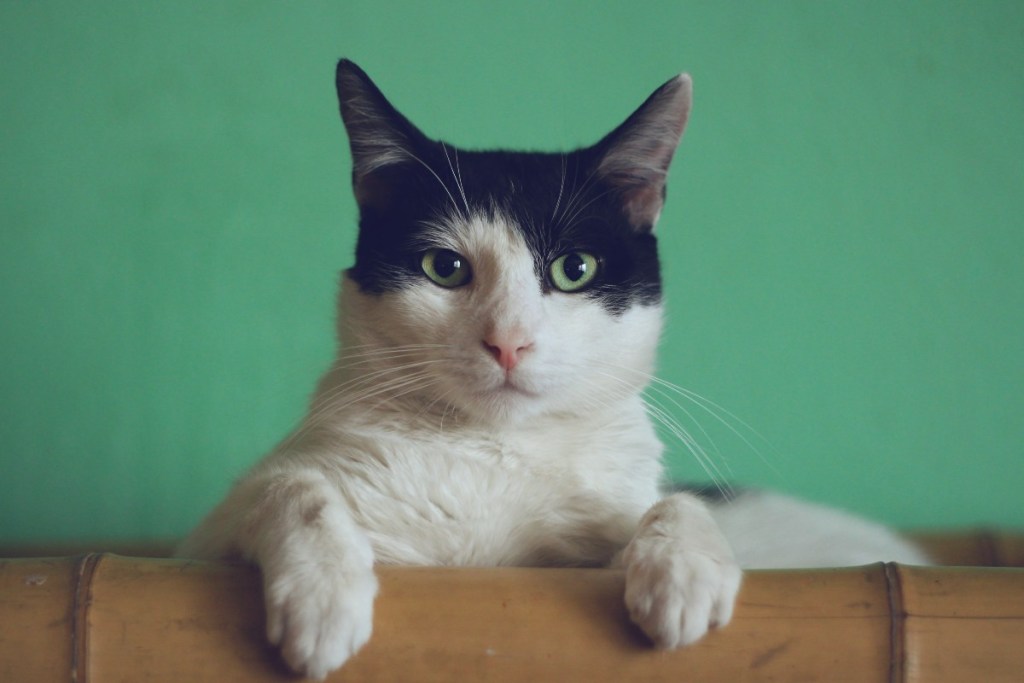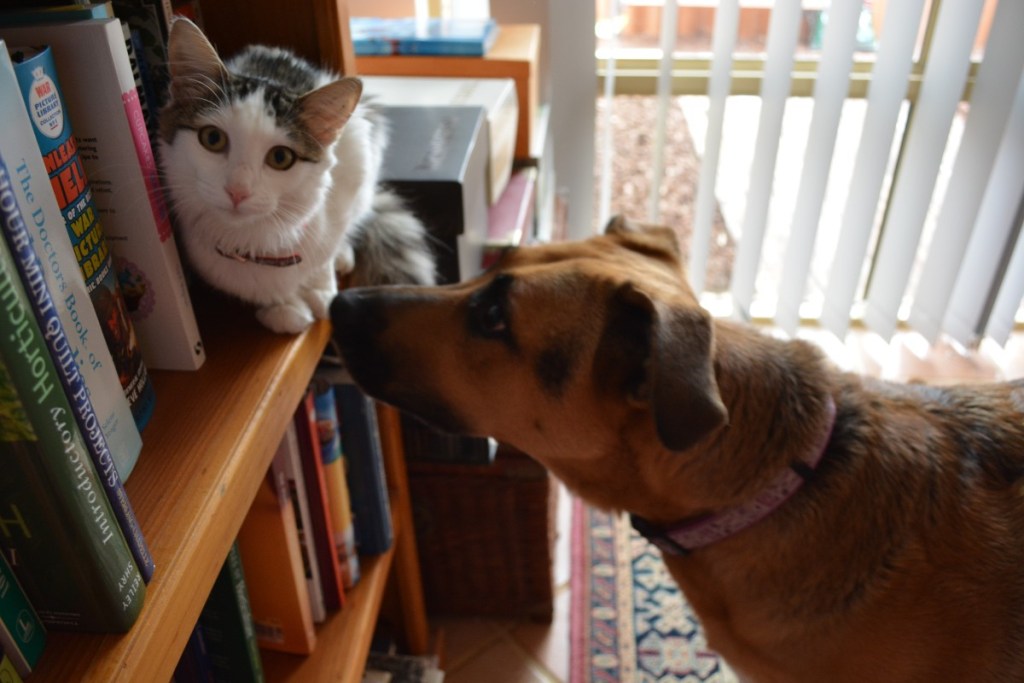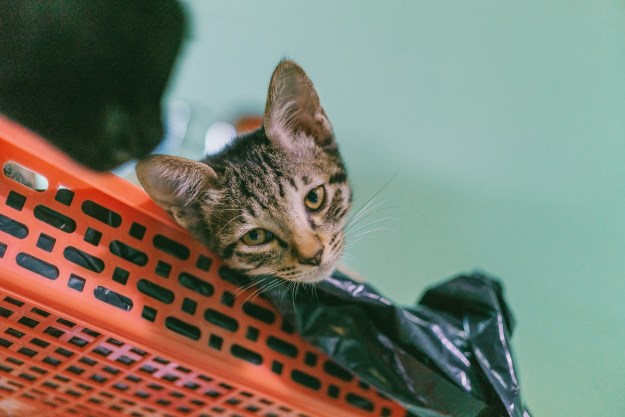In movies, the cat characters often think they are better than humans, their fellow felines, and certainly superior to dogs. Think Marie in Aristocats and the famous Mr. Bigglesworth in Austin Powers. Is there a chance that art could be imitating life, though? In other words, could cats actually be a paw above dogs? Dog people wouldn’t stand for it, but what do they know?
The truth is, cats are, in fact, better than dogs. Cat parents have known this for years, and we’re here to prove it once and for all. Here’s why cats are better than dogs.

They don’t follow your every move
You know that Police song that goes, “Every breath you take, every move you make … I’ll be watching you?” Sting apparently wrote the oft-misinterpreted sadistic song about a human love interest, but it could just as easily be about dogs. They follow you everywhere — to bed, to the front door, and to the bathroom. If you enjoy using the bathroom with the door closed, steer clear of dogs (and human toddlers, to be honest).
Cats don’t drag you outside in the cold
The litter box has something of a bad reputation. To be fair to the critics, it’s a non-flushable toilet that you, the human, must clean. However, only having to clean it rather than take your pet outside to use the facilities becomes a tiny luxury when it’s 15 degrees out.
They leave you the hell alone
Not only do cats not follow you everywhere, but they are also willing to give you your personal space even when you’re sharing a room. You may need peace and quiet after taking care of everyone and everything else. Cats will let you watch Netflix in peace without begging for belly rubs, rubbing against your leg, or bringing you a toy to tug or throw. They just expect you to return the favor.
You can leave cats alone for longer
Love traveling? You can do it more easily when you have a cat. It’s possible to leave them alone for about 24 hours at a time. On the other hand, dogs need to go out every few hours, eat twice daily, and take regular walks. Just make sure you have someone check in on your kitty once every 24 hours to ensure the litter box is clean and the water dish is full.
Cats are like mouse bouncers
Seeing a mouse can make even a grown person screech like a small child. If you don’t want to risk embarrassing yourself in front of your cool friends, get a cat. Small animals (like mice) know to enter a home with a cat at their own risk.
They don’t drool all over you
Dogs mean well when they happily lick our hands, faces, and feet. It sure is gross, though. Do you really want to wake up every day to puppy spit, especially when said puppy just spent five minutes licking his you-know-what? Cats are far more reserved and polite.

Cats cost less money
Money isn’t everything, but it’s something, and it’s essential to understand costs before adopting an animal. Cats cost at least $250 less per year than dogs and maybe more, according to the ASPCA. Why? Dogs need more, like leashes and extra toys. Their vet bills and monthly preventatives are typically more expensive in part because they are bigger.
They live longer
Saying goodbye to a furry friend is the hardest part of being a pet parent. Cats generally live a little longer than dogs. The average lifespan of an indoor cat is 10 to 15 years, whereas dogs live 10 to 13 years. Lifespans depend on various factors, though, including the breed and size of a dog, genetics, and lifestyle.
They take up less space
Some dogs weigh more than 100 lbs. Cats, on the other hand, are typically under 20 lbs. Because cats are smaller, they don’t take up as much real estate in your home. You’ll have more room for pet-friendly decor, larger sofas, and the shoe collection that would make Carrie Bradshaw swoon. (Bonus: Your cat won’t view it as a toy.)
Cats are quieter
Though cats can be vocal, they’re willing to let your doorbell or knocker do its job. They won’t meow incessantly (like dogs bark) when someone comes to the door. They also won’t mistake a leaf blowing across the street for an intruder and start sounding the alarm when you’re at the good part of your favorite movie.
We know these hot takes on why cats are better than dogs may be controversial. Truthfully, cats are dogs are both great. The best pet for you is the one you can take care of and love forever. In fact, many families have both cats and dogs in their homes — sometimes, they even become best friends. However, it’s fun to wade into the waters of the great cats vs. dogs debate. Some people prefer cats because they are lower-maintenance, can handle being left alone for longer, and don’t need to go outside in arctic-like temperatures to take a leak. Others simply fell in love with a kitty at the shelter and can’t imagine life without her. As long as you love and care for your pet, you can rest assured you made the purr-fect choice.
Editors' Recommendations
- Why do cats knead, and is this behavior normal?
- This is why cats pee on clothes (and how you can save your wardrobe in the future)
- Cats chirping at birds is totally normal (and here’s why you should encourage it)
- How to find the right veterinarian for your pet
- Why do cats twitch in their sleep? The real reasons behind this curious behavior



